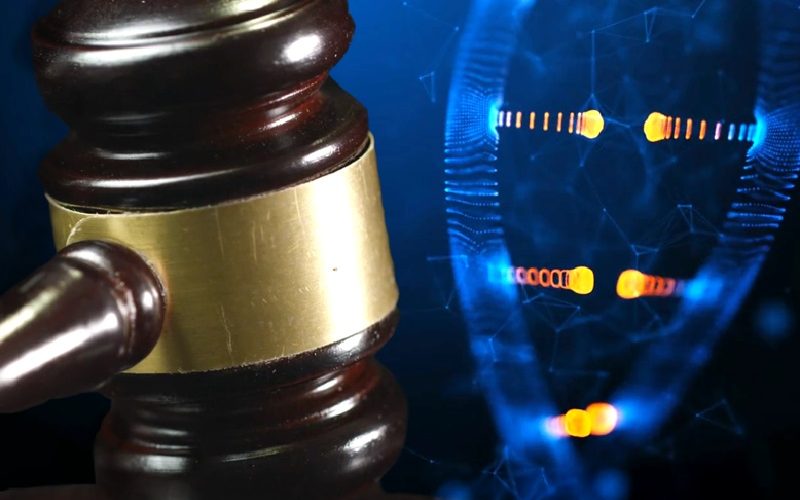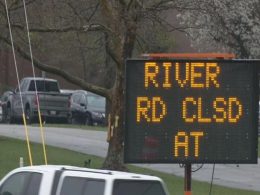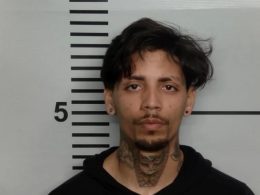LOUISVILLE, Ky. — A Louisville judge has sharply criticized the handling of evidence in a murder case by both the Louisville Metro Police Department (LMPD) and a private Florida DNA lab, calling the process “baffling” and “shocking.” The critique comes after a series of errors involving the testing of DNA evidence, which have raised concerns over the reliability of the testing process and the proper handling of court orders.
The case centers on Frederick Matthews, who is accused of the 2023 murder of 63-year-old George Sledd in Louisville’s Saint Denis neighborhood. The Louisville Metro Police Department, in an effort to address the backlog at the Kentucky State Police Forensic Laboratory, has been using DNA Labs International (DLI), a private laboratory based in Florida. While DLI’s services offer a significantly faster turnaround time — typically six to eight weeks compared to years at the state lab — its handling of certain procedures has raised serious questions.
At the heart of the controversy is a court order issued by Jefferson Circuit Court Judge Sarah Clay, which allowed Matthews’ defense team to oversee the testing of DNA evidence. However, it was revealed during hearings that both LMPD and DLI failed to comply with this order. Despite being directly instructed to allow the defense’s expert to be present during testing, multiple individuals at both the police department and the lab neglected to follow the directive, which Judge Clay found “truly troubling.”
In her March 18 ruling, Judge Clay called the failure to follow her order “shocking,” expressing disbelief that several people involved had not read or understood the instructions. “Literally everyone that was subject to this court order was willfully ignorant of it,” Clay said. While the lab and police acknowledged the error, the judge made it clear that such oversights would not be tolerated in the future.
“It is truly baffling,” Clay remarked, emphasizing that any future lapses would result in more severe consequences. She ultimately decided not to hold anyone in contempt, acknowledging that the violation of her order was not willful, but rather a case of negligence.
The mistakes in the Matthews case are part of a broader pattern. DLI’s quality assurance manager, Marybeth Sciaretta, testified that the lab had overlooked the court orders in several other cases, although these issues had been resolved without impacting the outcomes of those trials. Sciaretta claimed that steps were being taken to prevent further occurrences, including company-wide meetings to ensure all personnel are aware of proper procedures moving forward.
Prosecutors and defense attorneys have also expressed frustration with the lab’s lack of direct communication. In several instances, prosecutors were unable to contact DLI directly, instead having to go through LMPD. This created a chain of communication that left both defense and prosecution unable to monitor the DNA testing process effectively.
“I don’t think anybody at LMPD … I guess it would be, I don’t want to lie. I don’t know who it would fall under,” said LMPD Sgt. Matthew Kennington when asked who was responsible for ensuring the court orders were read and followed.
Despite the issues, the quicker results provided by the Florida lab have helped reduce the backlog of cases, allowing victims and defendants to see justice more quickly. However, the recent problems have highlighted the challenges of outsourcing forensic work to private labs, with concerns about the consistency and accuracy of the process.
Matthews’ defense attorney, Mark Hall, argued that DNA evidence could exonerate his client, stressing the importance of having the evidence tested correctly. While the prosecution has offered to proceed with the trial without the DNA evidence or to have it retested at the department’s expense with the defense expert present, Matthews’ legal team insists that the DNA testing must be completed before any decisions are made. The judge has yet to rule on the next steps for Matthews’ case, although his attorney has expressed frustration at the delays.
The situation underscores the complexities and potential pitfalls of using private laboratories for sensitive forensic work, particularly when it comes to ensuring that all legal procedures and orders are properly followed. As the case moves forward, both the prosecution and defense will continue to navigate the challenges presented by the handling of this critical evidence.











